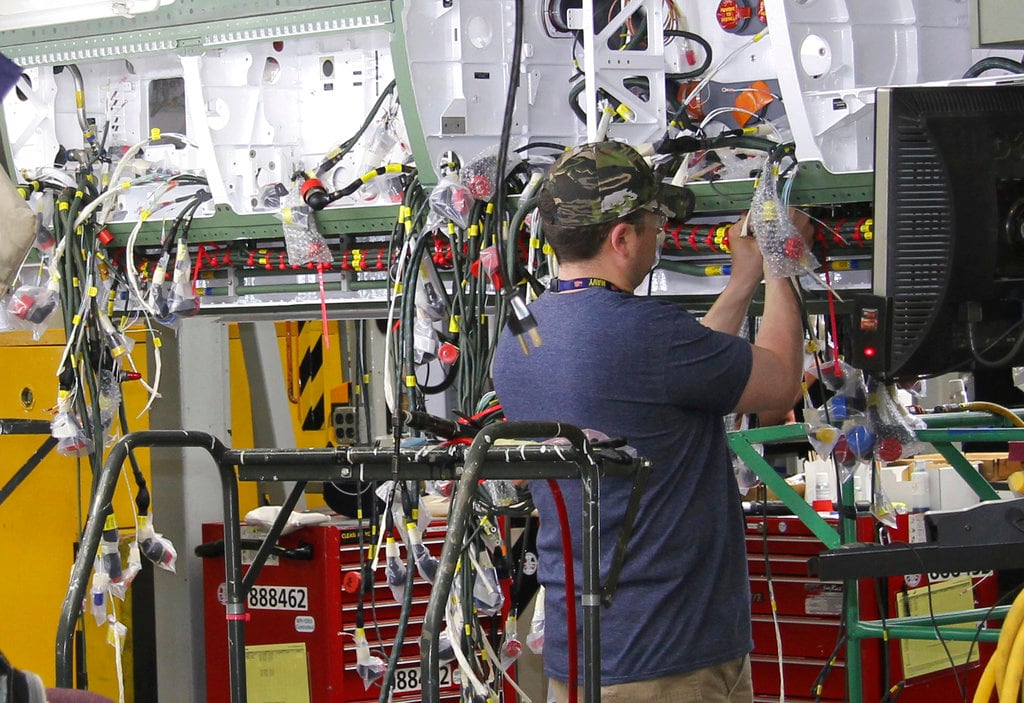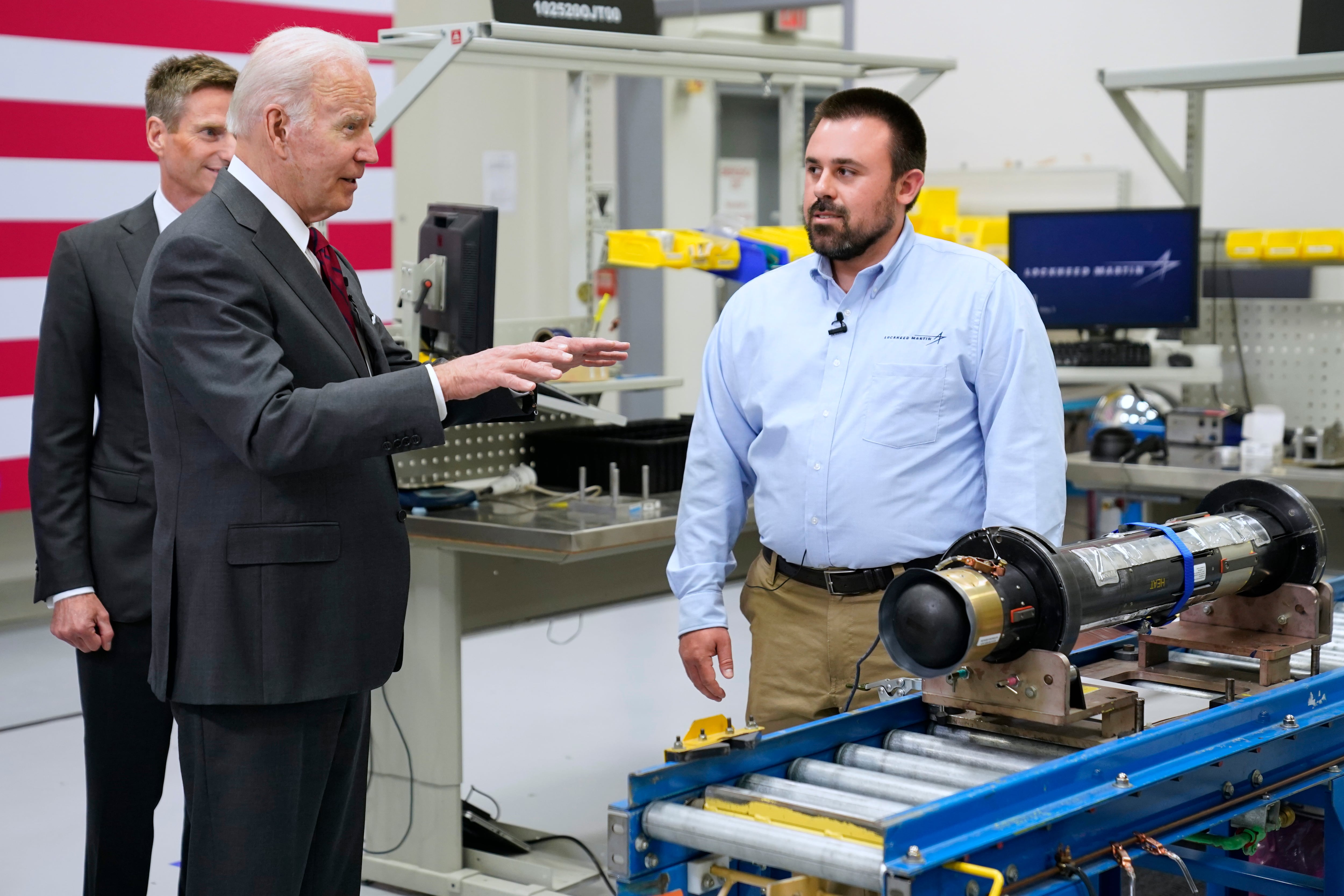WASHINGTON ― Millennials, the defense industry wants you.
As America’s baby boomers, named for the post-World War II surge of births, retire from defense industry jobs, their former employers are counting on millennials, who became young adults in this century, to take their place.
Speaking at a Center for Strategic and International Studies event on Tuesday, defense industry executives waved away the stereotypes about millennials being entitled and lacking a work ethic.
“I haven’t come across a millennial that’s lazy, I’ll tell you that straight up,” said Gordon Stein, the vice president of U.S. operations for General Dynamics Land Systems, which makes the Abrams tank and other armored vehicles.
The comments came as the defense industry grapples with labor shortages, supply chain kinks, inflation and increased demand brought about Russia’s invasion of Ukraine.
“We use to say, ‘The millennials are coming.’ The millennials are here,” said Frank St. John, chief operating officer at Lockheed Martin, the world’s largest defense company. “They represent the largest demographic in our workforce right now. They represent about 40% of our population.”
“They’re doing a significant share of the work, and they success we’ve had is due to some highly motivated ― not lazy ― millennials,” St. John said, adding that the industry’s national defense mission feeds employees’ desire to do important work.
RELATED

Americans have been quitting their jobs in droves, a trend some have dubbed the “Great Resignation.” Stein said that for the defense sector, it’s been more like a “Great Retirement” with the pandemic motivating baby boomers to exit the workforce early.
“We knew it was coming, so how did we prepare for it?” he said. “So I think the pandemic highlighted some of these vulnerabilities and gaps that we as an industry, but broadly the United States, needed to face.”
Since 2017, the age of employees in the aerospace and defense sector has averaged around 47 years old, while employees 55 or older made up 26% of the workforce, according to a study by the accounting and consulting firm EY.
To attract workers under the age of 40, firms have to factor in their values as well as offer internal or external job mobility to gain a wealth of experiences, purposeful corporate social responsibility initiatives and flexibility, according to EY’s study.
Motivation is not an issue.
“We haven’t seen a challenge of motivation at all. We have, though, recognized that millennials have a different view of work-life balance than someone, say, in my generation, where I just worked and if there was a little time left over for life that was my balance,” said Lockheed’s St. John, who is 56.
For Lockheed, efforts to attract and retain millennials has meant making work weeks more flexible and opening up broadening opportunities for employees, he said.
“It’s no longer the case that someone is going to stay in the same job, doing the same program, say, for a decade. We need to be thinking in terms of every 24 months or so ― a new experience,” St. John said.
Contractors are looking at re-skilling its union-affiliated workforce for the digital age, an effort that’s driven partnerships with the U.S. Navy and local governments.
RELATED

That dovetails with efforts to figure out the future of remote work, after the COVID-19 pandemic.
“We do see the millennials have benefitted from the flexibility that COVID afforded all of us ― or forced all of us to put in place,” GE Aviation Military Systems CEO Amy Gowder said. “But they still want the engagement, so we’re working on the right balance of that in-person collaboration that you can’t substitute for.”
For “touch labor” that can’t be done remotely, like machining and welding, GE is collaborating with labor unions for training and apprenticeship programs. That, she said, is helping satisfy workers who want to continue to learn and grow.
Millennials may soon have to share the spotlight.
According to Stein, the industry should already be focused on Generation Z, the group born between the late 1990s and early 2010s. To recruit tradespeople, talent pipelines have to start in high school and vocational schools, he said.
“That’s where you grow that talent, it starts right there in the schools and the homes,” Stein said. “If you look at the demographics, we have to start now.”
Generation X, the generation between Baby Boomers and millennials, was not mentioned at the CSIS event.
Joe Gould was the senior Pentagon reporter for Defense News, covering the intersection of national security policy, politics and the defense industry. He had previously served as Congress reporter.







